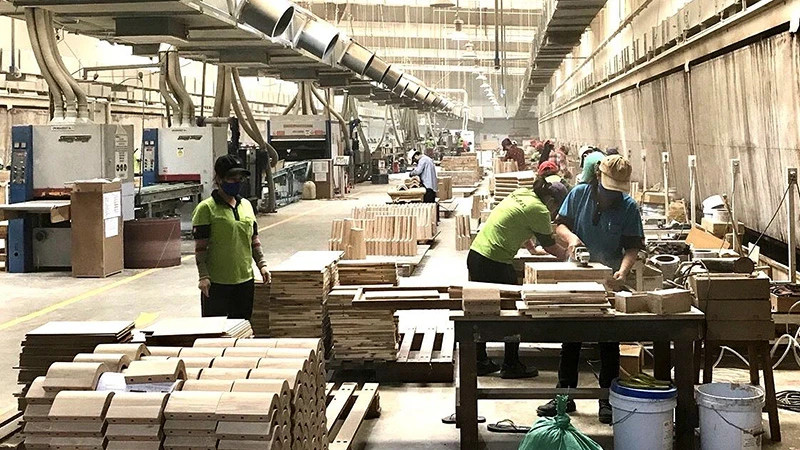According to the Vietnam Timber and Forest Products Association (VIFOREST), the wood industry attracted 57 new FDI projects in 2023, with a total investment capital of about 300 million USD, of which China-invested projects accounted for 49.1% of the total number of projects and 35.5% of the investment capital. Wood processing received the largest number of new FDI projects, followed by artificial boards (plywood, flooring), pellets, wood trade and supporting industry.
Localities receiving the highest number of new projects include Binh Duong (18 projects), Binh Phuoc (15 projects), Long An and Bac Giang (three projects each). In 2023, the number of FDI enterprises participating in wood export occupied only 18.8% of the total number of export enterprises in Vietnam, but their export turnover hit 6.24 billion USD, making up 47.4 % of the total export turnover of the entire wood industry.
Expert Cao Thi Cam from VIFOREST assessed that the increase in activities of FDI enterprises, including export activity, is partly due to the result of new generation free trade agreements that Vietnam is participating in and partly due to the advantages of Vietnam’s geographical location and the development of the country’s wood industry ecosystem. In addition, the FDI attraction of Vietnam’s wood industry is thanks to the Government’s preferential policies and benefits from trade defence measures that the US Government imposes on some Chinese wooden products exported to the US.
Although FDI enterprises only account for a small proportion of businesses, the export turnover of this group always occupies nearly half of the total export turnover of the whole industry. The number of FDI enterprises participating in the wood industry and their export turnover have always grown steadily in recent years. This sector is one of the important development drivers of the economy, with crucial input factors for development such as capital strength, management level, technology capacity and market accessibility.
The Government also expects that over time, these input factors will be spread to the Vietnamese business sector. New FDI projects investing in the wood industry focus on manufacturing products that bring about high-added value, such as beds, kitchen cabinets, tables and chairs. China is still the dominant country in terms of capital quantity, capital contribution, and share purchase in the Vietnamese wood industry. The outstanding feature of investors from China is that the scale of each project is relatively small, but the export turnover is the highest among FDI enterprises participating in wood export.
In 2023, Binh Phuoc surpassed Binh Duong to become the province receiving the largest FDI capital in the wood industry. In general, FDI projects in the wood industry are still concentrated in provinces such as Binh Duong, Dong Nai, Bac Giang, Long An, Hung Yen and Ho Chi Minh City, thanks to the good infrastructure systems, stable human resources, efforts to reform administrative procedures and the activeness in investment promotion.
Despite the small number of FDI enterprises participating in exports, their export turnover is very large, which is something worth pondering for the Vietnamese wood industry. This demonstrates the superiority in chain production of this sector compared to the domestic sector. This advantage could come from many factors, such as production scale, investment, management level, technology, and market accessibility.
To Xuan Phuc, a policy analyst at Forest Trends, said despite only 18-19% of the total number of FDI enterprises participating in direct export, their export turnover always reaches a high level, expressing the superiority of this sector in export.
The superiority of FDI enterprises operating in the wood industry needs to be spread to domestic enterprises. However, the connection between FDI enterprises and Vietnamese enterprises remains limited. The government and wood associations should promote the formation of a suitable institutional and policy environment to encourage the establishment of links and sharing of benefits and responsibilities of the business community.
This connection should also include stronger and more practical participation of the business sector in the wood industry. 2024 is still expected to be a difficult year for the wood processing and export industry. Therefore, the good cohesion and cooperation between FDI and domestic enterprises will contribute to fostering the sustainable development of Vietnam’s wood industry in the future.
















